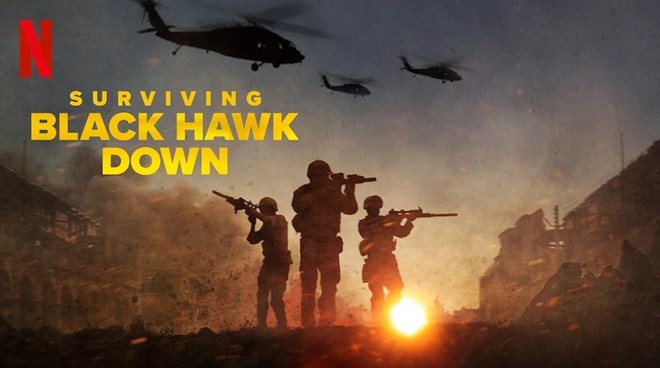
Friday January 17, 2025
Hargeisa (HOL) — On February 10, Netflix will debut Surviving Black Hawk Down, a three-part docuseries that revisits the harrowing events of the 1993 Battle of Mogadishu, a watershed moment in modern history immortalized by Ridley Scott’s Academy Award-winning 2001 film Black Hawk Down. Produced by RSA Films and directed by Jack MacInnes, the series sheds new light on one of the deadliest urban battles in recent history through a lens of unfiltered authenticity.
On October 3, 1993, an American task force set out to apprehend two of Aidid’s top allies in Mogadishu. What began as a precision operation turned into a gruelling 15-hour battle when Somali militias downed two Black Hawk helicopters, triggering intense street combat. By the time the smoke cleared, 18 American soldiers and hundreds of Somali fighters and civilians had been killed. The images of U.S. casualties, broadcast globally, shocked the world and reshaped perceptions of humanitarian intervention.
“This is a gripping tale that goes beyond Hollywood’s lens,” said Dominic Crossley-Holland, Executive Producer at RSA Films. “It’s powerful to hear the voices of both U.S. soldiers and Somalis who lived through this conflict. Their stories resonate deeply, offering new insights into a day that changed countless lives.”
The documentary also explores the lasting impact of the battle, from the withdrawal of U.S. forces from Somalia to the enduring scars on the local population. For Somali interviewees, it provides a long-overdue platform to share their experiences, offering a nuanced perspective on a day often told solely from an American point of view.